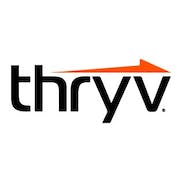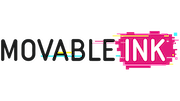Are you in search of the best SMS marketing software? Check out our comprehensive buyer's guide for all the information you may need to help you find the perfect solution for your business.
SMS marketing has become increasingly popular among marketers as a reliable and cost-effective way to reach customers directly. With open rates reaching as high as 98%, SMS marketing provides a unique opportunity for businesses to engage with their audience. However, as with any marketing tool, not all SMS marketing software is created equal. Selecting the right one requires careful consideration of features, benefits and ease of use. This buyer's guide will explore the factors to consider when choosing the best SMS marketing solution to ensure that your marketing campaigns are effective and profitable.
What is SMS marketing software?
This is a tool that enables businesses to send marketing messages, news, coupons, and more to customers via SMS on their mobile devices. It's a powerful channel for promotions, and with over 97% of Americans owning a mobile phone and 85% owning a smartphone, SMS marketing technology has become an essential part of any company's overall marketing strategy. It's a cost-effective, efficient, and scalable way to reach out to potential customers. SMS is widely believed to be an effective marketing technique. Almost 97% of people text at least once a day, meaning they’re constantly checking their phones for one reason or another.
SMS campaigns can be used to send fun or valuable content, gather customer opinions, create a sense of urgency for sales, collect information from potential leads, and run automated messages triggered by segmentation. Below are some of the use cases:
- Content sharing: To send useful content to customers like blog posts, articles, and infographics.
- Polls and surveys: To collect real-time feedback from customers with surveys and polls.
- Flash sales:Revenue can be increased by driving traffic to the company's website or physical store with time-bound sales.
- Giveaways: Engaging customers with contests and giveaways to build customer loyalty.
- Drip campaigns: To run automated campaigns that send a series of messages to customers to keep them engaged.
SMS marketing technology is ideal for businesses of all sizes, from small startups to large corporations. It's especially valuable for companies that have a mobile-first or mobile-heavy strategy, such as ecommerce, retail, travel, healthcare, and entertainment. However, any business looking to engage with customers efficiently and cost-effectively can benefit from adopting this powerful tool.
What are the benefits of utilizing an SMS marketing platform?
SMS marketing software is so important because if offers a wide range of advantages. Here are a number of compelling reasons:
- Instant communication: SMS messages are delivered instantly, ensuring that your message reaches your customers in a timely manner. This is particularly useful when sending time-sensitive information or promotions.
- High open rates: SMS messages have a much higher open rate than emails. In fact, studies have shown that SMS messages have a 98% open rate, compared to just 20% for emails.
- Increased engagement: SMS messages are short, to the point, and can easily be customized to your target audience, resulting in higher engagement rates.
- Cost-effective: An SMS marketing platform is an affordable solution for businesses of all sizes, with many providers offering pricing plans that cater to small- to medium-sized businesses.
- Greater reach: With over 5 billion people owning a mobile phone, the package offers a greater reach than other forms of marketing, such as email.
- Personalization: SMS messages can be easily customized to include the recipient's name, location, or other personal information, making the message more relevant and engaging.
- Higher conversion rates: They are known to have higher conversion rates than other forms of marketing, with some studies reporting conversion rates as high as 45%.
10 key features of SMS marketing software
SMS marketing software solutions provide a wide range of essential features and here are the 10 common ones to have in mind:
1. Campaign creation and execution: The program offers the ability to create and send targeted campaigns to customers via text message. This year, 80% of businesses use SMS marketing software to text their customers and nearly 70% are increasing their SMS marketing budgets.
2. Personalized messaging: The system makes it easy to customize messages for each recipient, increasing engagement rates.
3. Scheduling: Users can schedule messages to be sent at specific times and dates, keeping the business top of mind for recipients.
4. Short-codes: Short-codes help make it easier for customers to opt-in to messages and for businesses to manage their subscriber list.
5. Auto-response: An SMS marketing platformcan be configured to automatically send messages in response to specific queries or keywords.
6. Comprehensive analytics: The application provides real-time analytics, allowing businesses to track the success of their campaigns and adjust accordingly.
7. Opt-in/Opt-out management: It can easily manage opt-ins and opt-outs to ensure compliance with regulations and maintain a clean subscriber list.
8. Integration: Message marketing platforms can integrate with other marketing tools, such as email marketing software and CRM systems.
9. Two-way messaging: The program can be configured to allow for two-way messaging, enabling businesses to have conversations with customers and prospects.
10. Multi-lingual support: It can also support multiple languages, making it more accessible to a diverse range of customers.
Key considerations when investing in an SMS marketing platform
There are a wide variety of software options available in the market and it can be overwhelming to choose the right one. Here are some factors to consider when purchasing an SMS platform:
1. Features and functionality: The SMS marketing app you choose should have all the advanced features and tools that your business needs to succeed. For instance, it should have the capability to send bulk text messages at once, automated workflows, and dynamic personalization to create a more personalized experience for each customer.
2. Integration with other systems: It is essential to choose one that integrates well with your other systems to avoid disruptions to your operation efficiently. It should also be able to integrate with your CRM software, e-commerce solution, and other marketing tools that you use. Statistics show that 78% of marketers say they’ve hooked up their SMS program to their ecommerce solution as integration with ecommerce platforms is the most common form of SMS integration.
3. Pricing: Consider the pricing structure of the SMS platform you're interested in and ensure that it's within your budget limitations. Some providers charge per message, while others offer monthly subscription plans that may vary based on the number of messages you send.
4. User-friendliness: Choose an application that's easy to use, even if you have little to no technical knowledge. The solution should have an intuitive interface and active customer support to help you navigate any challenges you face along the way.
5. Reporting and analytics: To know how well your SMS marketing campaigns are performing, your SMS program should have a reporting and analytics module that provides valuable insights on campaign performance metrics such as open rate, click-through rate, and conversion rate.
6. Compliance: An SMS marketing package should comply with regulations such as GDPR and TCPA to avoid penalties and legal action. Confirm with your provider that the software complies with all relevant laws and regulations.
Industry trends for SMS marketing software
Businesses are increasingly adopting SMS marketing tools to manage customer data and improve customer experience. As we head further into 2024 and beyond, several trends are shaping the future of SMS technology. Here are some key trends to watch out for:
1. Integration with omnichannel marketing
Modern SMS marketing software increasingly integrates with other marketing channels such as email, social media, and push notifications. This integration allows businesses to create cohesive and seamless omnichannel marketing strategies, providing a more consistent and engaging customer experience.
2. AI and machine learning
Artificial intelligence (AI) and machine learning (ML) are becoming more prevalent as these technologies help businesses analyze customer behavior, predict trends, and personalize messages. AI-driven insights can optimize send times, improve segmentation, and enhance overall campaign effectiveness.
3. Advanced personalization
Personalization is taking center stage in SMS marketing. Advanced personalization features enable businesses to send highly targeted messages based on customer preferences, purchase history, and behavior. This trend is driven by the increasing demand for more relevant and engaging customer interactions.
4. Rich communication services (RCS)
RCS is the next evolution of SMS, offering richer multimedia capabilities such as images, videos, and interactive elements. As RCS adoption grows, businesses can create more engaging and visually appealing messages, improving customer engagement and response rates.
6. Enhanced compliance and security
With growing concerns around data privacy and security, SMS marketing software is evolving to ensure compliance with regulations such as GDPR and TCPA. Enhanced security measures, such as end-to-end encryption, are becoming standard to protect customer data and maintain trust.
Conclusion
As you move forward, remember that the key to successful SMS marketing lies in delivering value to your customers. Craft messages that are timely, relevant, and personalized, and always seek to build trust and maintain positive relationships. With careful planning and execution, SMS marketing can become a powerful tool in your marketing arsenal.








